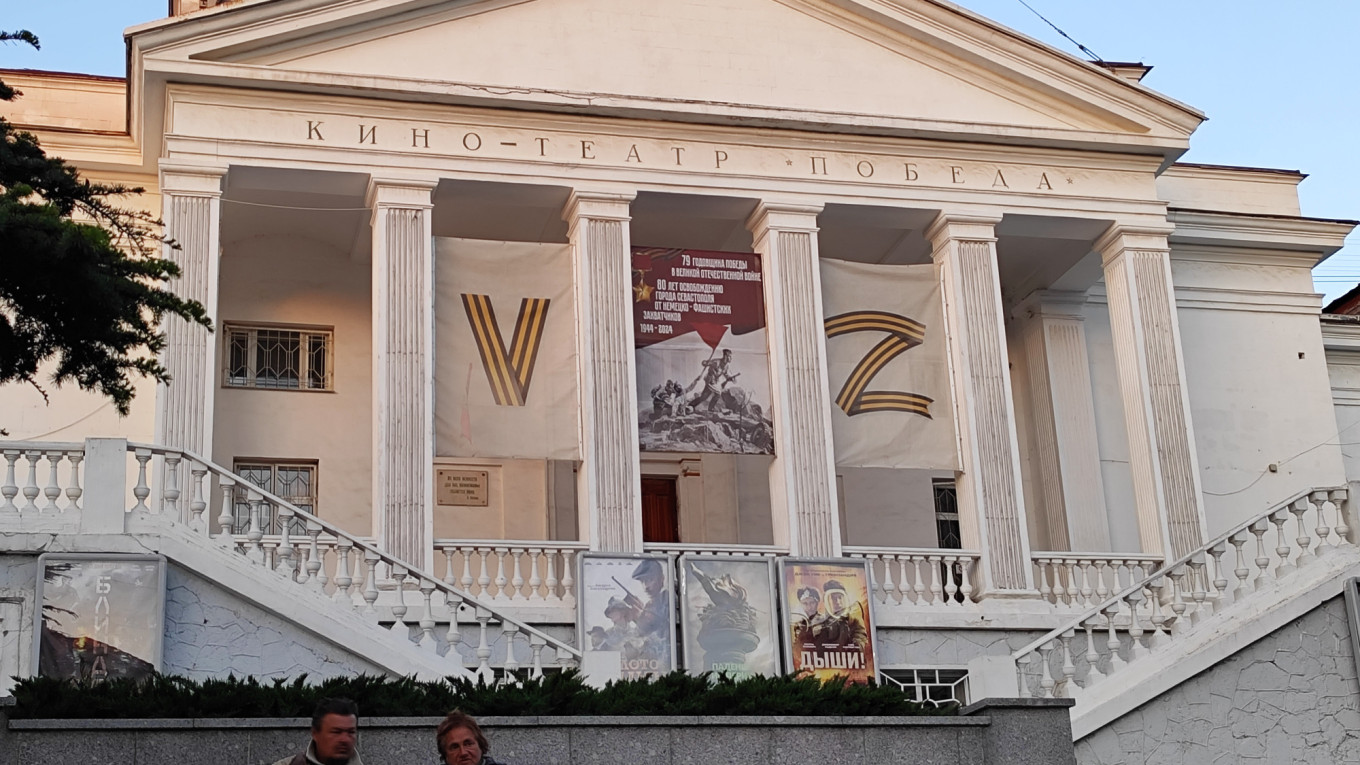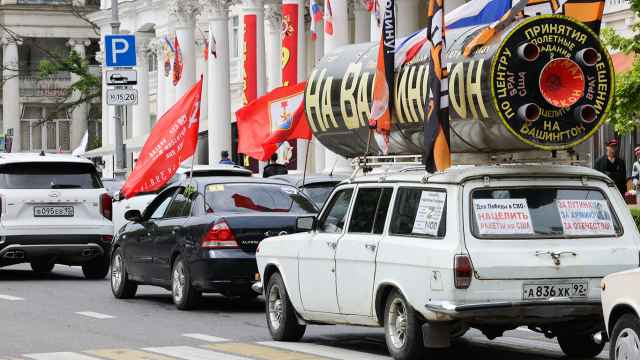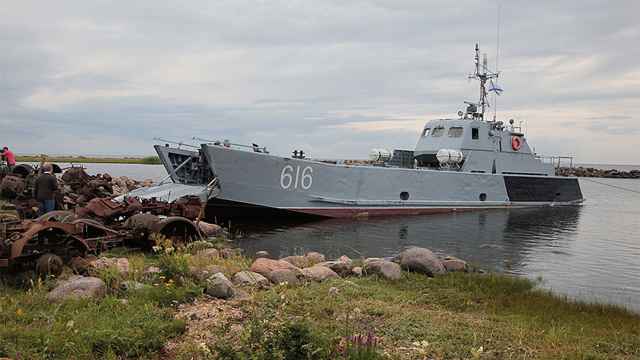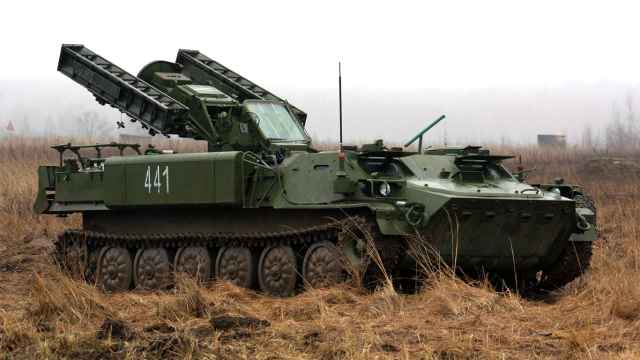SEVASTOPOL — At a cemetery on the outskirts of Sevastopol, annexed Crimea’s main port city, hundreds of Russian flags fluttered in the wind beside the graves of soldiers killed in Moscow’s war against Ukraine.
Walking among the graves were Olga, 65, with her husband Vladimir, 73. The retired couple came to visit the cemetery on the eve of Victory Day, a national holiday when Russians celebrate the Soviet Union’s triumph over Nazi Germany in 1945.
“We’re here to give thanks, to honor their memory,” Olga said of the fallen soldiers. “Victory will be ours, there’s no other way out.”
The retired couple said they moved to Sevastopol from mainland Russia in 2019, five years after Moscow annexed the Ukrainian peninsula in a widely condemned referendum that served as a precursor of the February 2022 invasion.
“This is our land,” Vladimir told The Moscow Times. “In 1941 we weren't ready [for Nazi Germany’s invasion]. This time we acted ahead of them [in Ukraine] by a couple of days.”
Since invading Ukraine more than two years ago, the Kremlin and its mouthpieces have sought to draw parallels between what they call a “special military operation” and the Soviet Union’s struggle against Nazism during World War II. And some pro-war Russians view themselves as reliving the feats of their ancestors by liberating Ukrainians from alleged neo-Nazi tyranny.
In a Victory Day speech at Red Square on Thursday, President Vladimir Putin called on Russians to honor the memories of “civilians killed in the neo-Nazis’ barbaric shelling and terrorist acts,” referring to Ukrainian attacks on Russian territory.
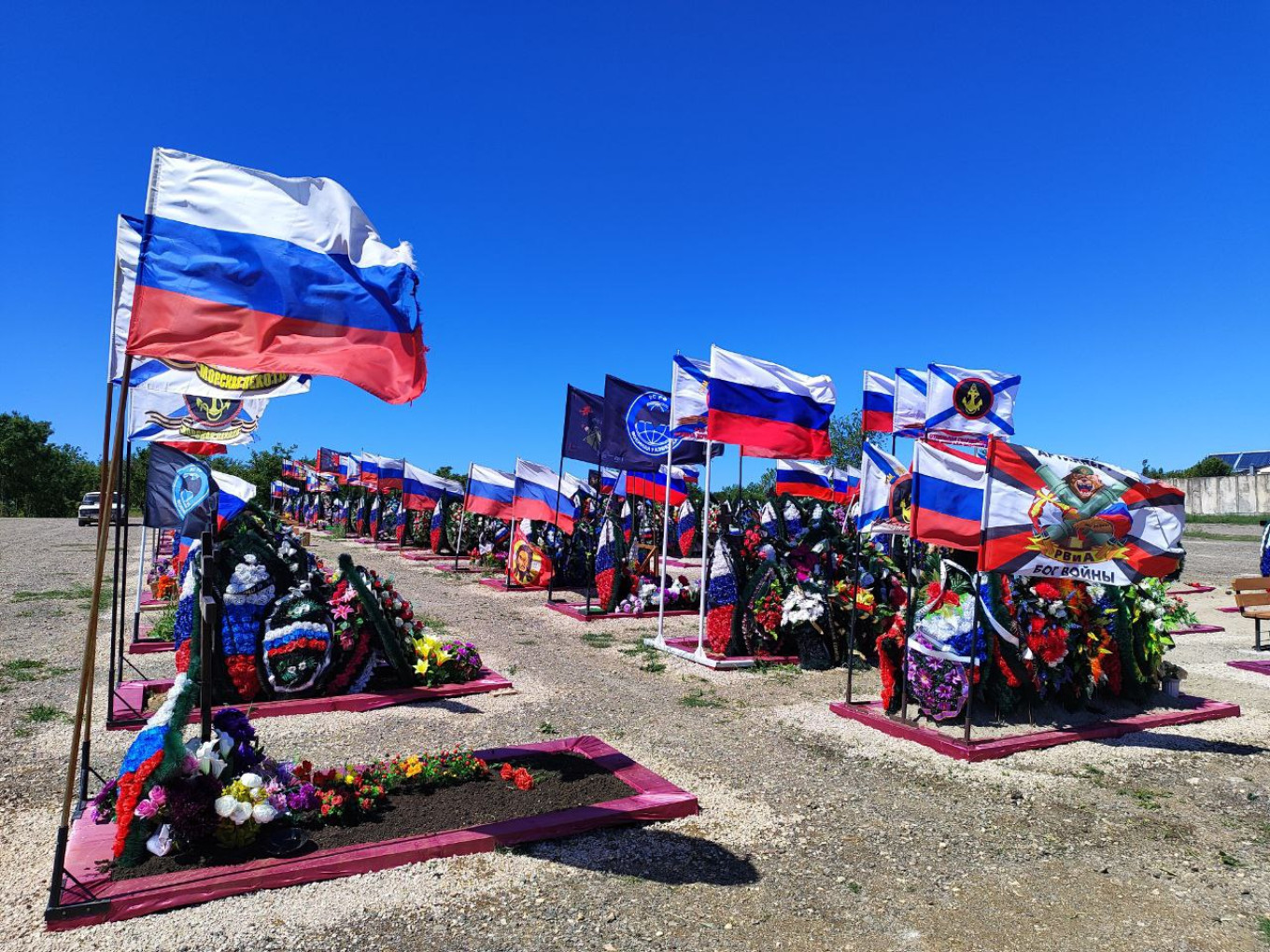
Not far away from the cemetery on the outskirts of Sevastopol, explosions could be heard as Russia’s Black Sea Fleet conducted military exercises in anticipation of possible Ukrainian airstrikes on Victory Day.
Authorities in Kyiv have repeatedly vowed to take back Crimea. And since the full-scale invasion, Ukrainian forces have fired on the annexed territory — which has been used as a logistics hub by the Russian military — with sometimes devastating effects.
Dozens of U.S.-supplied ATACMS missiles were reportedly launched at Crimea last month, according to pro-war Russian bloggers, with some speculating that Ukraine was preparing to launch a major attack against the peninsula.
Amid the heightened risks, Moscow-backed authorities in Crimea scrapped Victory Day celebrations. Parades and other festivities were also canceled in dozens of Russian regions due to safety concerns.
“If we hear the sirens, we run to the shelter and wait,” said Yana, a 25-year-old small business owner in Sevastopol. “Everyone’s gotten used to it.”
Yana said she planned to stay home for Victory Day, adding that she hopes the nearby conflict ends as soon as possible, regardless of whether Moscow can claim further territorial gains in Ukraine.
“Victory does not mean domination by one of the parties,” her friend Evgeny, a university student, told The Moscow Times. “If it ends with a peace agreement, that too would mean victory.”
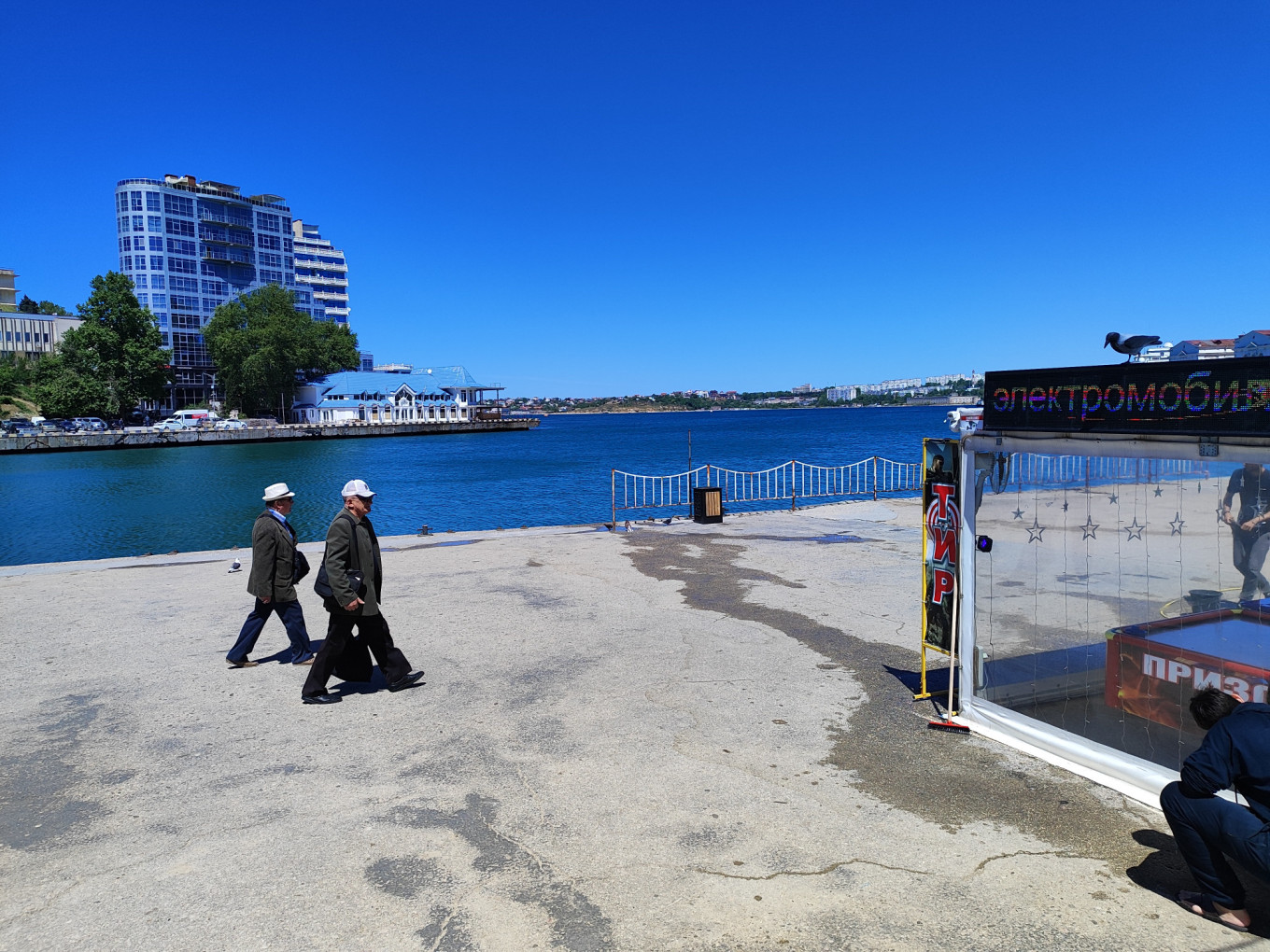
While Russian forces continue to make territorial gains on the front line in eastern Ukraine, claiming several villages over just the past week, Moscow’s Black Sea Fleet has proven to be a weak spot in the Kremlin’s sprawling military. Ukrainian seaborne drone and rocket attacks are estimated to have destroyed around 20% of the ships in the Black Sea Fleet.
In October, Moscow moved part of the fleet from its anchor in Sevastopol to the port city of Novorossiysk, which lies more than 300 kilometers to the east. And the fleet’s own headquarters in downtown Sevastopol remains in ruins after being damaged in a rocket attack last year.
“We find ourselves in a difficult situation,” said Mikhail Anokhin, a 54-year-old retired navy captain and the head of Sevastopol’s branch of the Russian Veterans Union.
“The Black Sea Fleet was not prepared for the deployment of these weapons,” he told The Moscow Times in an interview at his office, referring to long-range rockets sent to Kyiv by its Western allies. “We need to learn from our mistakes.”
Anokhin said that a lack of resolve within the Russian military to root out corruption and treason within its ranks was to blame for the havoc wreaked on the Black Sea Fleet.
A large photo of President Vladimir Putin could be seen hanging in Anokhin’s office, alongside a portrait of Soviet dictator Joseph Stalin, who led the U.S.S.R. to victory in World War II.
“Stalin could see and understand many things,” the retired navy captain said. “I believe in Vladimir Vladimirovich, but his hands are tied and he cannot act as severely [as Stalin did].”
Anokhin said he believes victory against Kyiv will come only when Russian forces can ensure full protection over annexed Crimea. He said that would require conquering the whole southern coast of Ukraine.
“The Black Sea must be closed off to Ukraine,” he said.
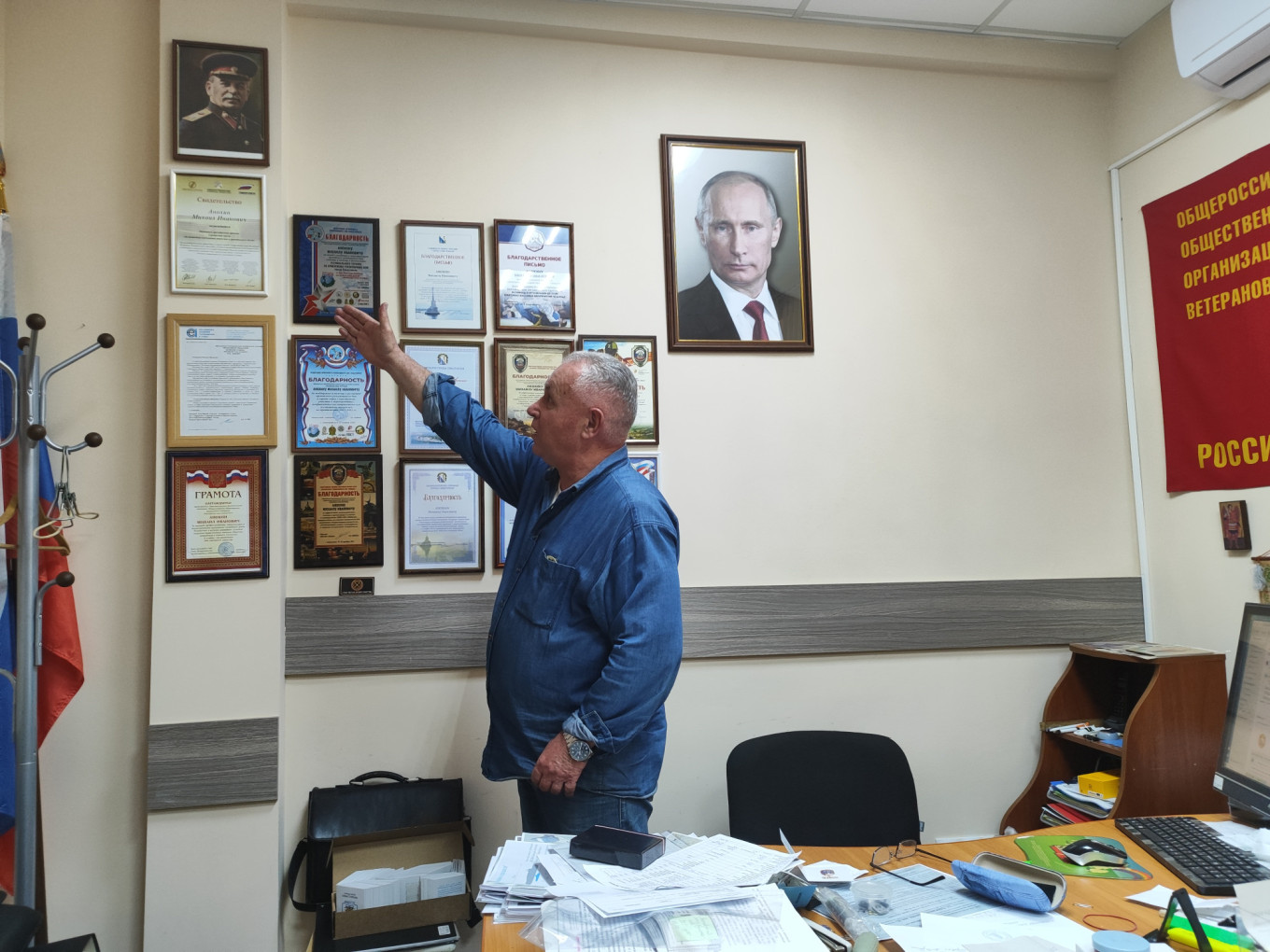
In Sevastopol, which has been highly militarized since Moscow annexed Crimea in 2014, Russian servicemen could often be seen strolling the streets. Among them was 25-year-old Aleksandr, who was on leave and visiting his wife Aleksandra for Victory Day.
“This holiday serves as a reminder that the evil we fought against [in the past] is like a mold we didn’t completely clean up,” the soldier, who had just come back from the front in Ukraine, told The Moscow Times.
Aleksandr said he and his wife Aleksandra moved about a year ago from Russia to Sevastopol, where they hope to settle down and raise a family.
“I was proud of my grandfather, who was a hero of the Soviet Union,” said Aleksandra, whose coat was pinned with a Saint George Ribbon — a symbol of Russian military pride.
“Now I understand the responsibility of our ancestors better,” she said.
Despite the warm and sunny weather in Sevastopol on the eve of Victory Day, few people could be seen strolling along the city’s main pedestrian walkway. Since the full-scale invasion, millions of Russian vacationers have avoided Crimea’s Black Sea resorts because of regular rocket and drone attacks from Ukraine.
“The best times were before 2014 when Russia and Ukraine were friends,” said Anna, who sells souvenirs in the port city. “The only tourists left are relatives visiting and the brave few who come out of curiosity.”
The 57-year-old said Victory Day used to be her favorite celebration in the year, and she always attended parades and other festivities to mark the occasion. However, Anna said, this year, the national holiday would be just another day for her.
“I don’t believe there will be victory,” she said.
“I feel a kind of sadness, no one knows what will come tomorrow.”
A Message from The Moscow Times:
Dear readers,
We are facing unprecedented challenges. Russia's Prosecutor General's Office has designated The Moscow Times as an "undesirable" organization, criminalizing our work and putting our staff at risk of prosecution. This follows our earlier unjust labeling as a "foreign agent."
These actions are direct attempts to silence independent journalism in Russia. The authorities claim our work "discredits the decisions of the Russian leadership." We see things differently: we strive to provide accurate, unbiased reporting on Russia.
We, the journalists of The Moscow Times, refuse to be silenced. But to continue our work, we need your help.
Your support, no matter how small, makes a world of difference. If you can, please support us monthly starting from just $2. It's quick to set up, and every contribution makes a significant impact.
By supporting The Moscow Times, you're defending open, independent journalism in the face of repression. Thank you for standing with us.
Remind me later.



